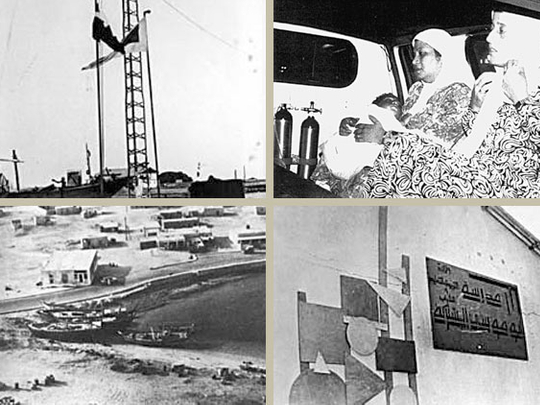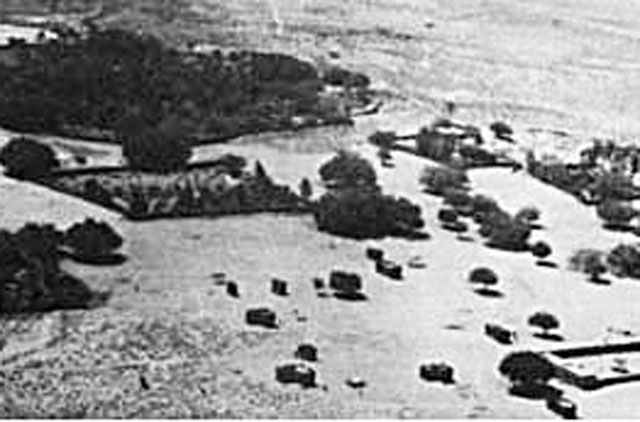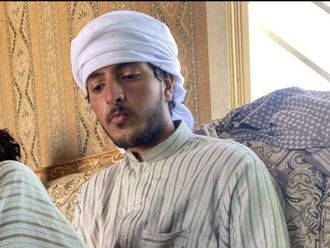
Dubai: Iran's recent move to annex the occupied UAE islands of Abu Mousa, Greater and Lesser Tunb, could threaten international security and peace, which prompts taking the issue to the UN Security council, officials and academics said Wednesday.
Asked about Iran's recent statements to establish a new province with Abu Mousa island as its capital, Abdul Latif Al Zayani, Secretary-General of Gulf Cooperation Council, said: "The GCC position is clear: Any decision does not change the historical and legal reality of the Abu Mousa, Greater and Lesser Tunbs islands. These islands are Emirati. We hope that the solution would be a peaceful one. The procedures and provocations could threaten the international security and peace."
His statements came following the inauguration of the second Sharjah Business Forum yesterday.
An Iranian parliamentarian was quoted by the semi-official Fars News Agency as saying a draft law to be submitted to the Iranian parliament proposes the establishment of a new province with Abu Mousa, one of the three UAE islands as its capital.
The draft law, which was discussed in the Committee of Municipalities and Internal Policy at the Islamic Consultative Assembly in the Iranian parliament, proposes the establishment of a new province under the name the ‘Persian Gulf Province', said committee member Wally Esmail.
"The province is to include several Iranian islands in the Gulf together with Abu Mousa, which will become the capital," he told the semi-official Fars News Agency. Esmail added that Greater Tunb and Lesser Tunb will also be included in the new province."It will also include other islands like Kish Island, Qeshm Island, and Lavan Island."
Inseparable part
Ali Jasem, a veteran Emirati parliamentarian, said these Iranian "provocative moves will not change the legal status of the three Emirati islands which are inseparable part of UAE soil".
Jasem added the issue should be resolved through negotiations or international arbitration. "These provocative acts can never establish any right to our territories."
The plan to establish the new province comes in the wake of Iranian President Mahmoud Ahmadinejad's visit to UAE Island of Abu Mousa which was also condemned as provocative by Arab, Gulf and Western officials.
Foreign Minister Shaikh Abdullah Bin Zayed Al Nahyan has stressed the occupation of the three UAE's islands could threaten the international security and peace because literally 40 per cent of the World's energy is passing near the three islands at the mouth of the strategic Strait of Hormuz.
Dr Abdul Rahim Al Shaheen, a member of the Federal National Council, denounced attempt by the Iranian parliament to annex the three UAE's islands as another "stark violation of the UAE sovereignty over its lands".
Dr Al Shaheen stressed it is high time for the issue to be taken to the UN Security Council. "The Iranian policy of fait accompli and attempts to annex our lands should not be tolerated any longer and further actions including lowering the level of diplomatic representation with Tehran and reducing or severing economic ties with Iran should be taken sooner rather than later," Dr Al Shaheen said.
Iran occupied the three UAE islands on the eve of the UAE's independence in December 1971 and the issue has been a point of contention between the two countries ever since.
UAE leaders, including the late Shaikh Zayed Bin Sultan Al Nahyan, the nation's founder, have repeatedly urged successive Iranian governments to end the dispute through direct negotiations or international arbitration. These calls, however, have been consistently turned down by Iranian officials.
Aisha Al Merri, an Emirati writer, suggested that the UAE should submit a complaint to the UN Security Council, which may decide what measures are to be employed to resolve the issue and it may call upon the Members of the United Nations to apply such measures. These may include complete or partial interruption of economic relations and the severance of diplomatic ties.
Under the UN Charter, should the Security Council consider these measures would be inadequate or have proved to be inadequate, it may take such action by air, sea, or land forces as may be necessary to maintain or restore international peace and security. Such action may include demonstrations, blockade, and other operations by air, sea, or land forces of Members of the United Nations.













